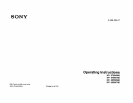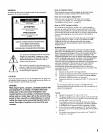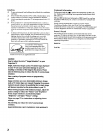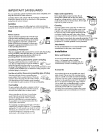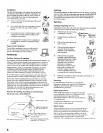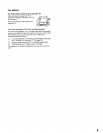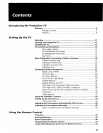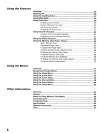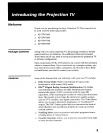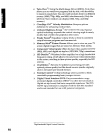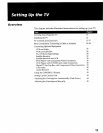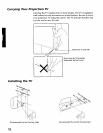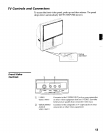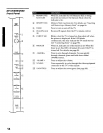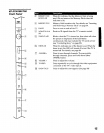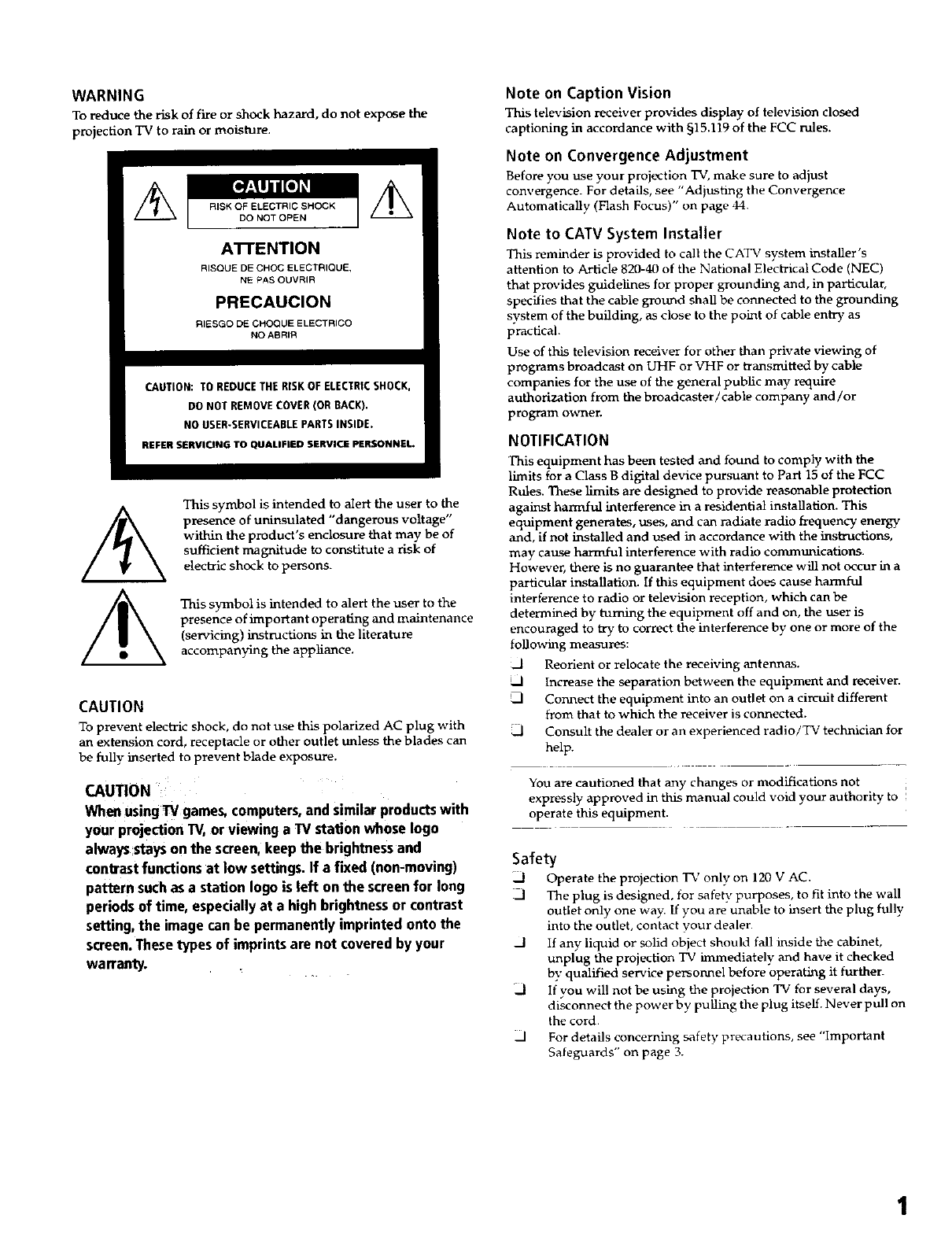
WARNING
To reduce the risk of fire or shock hazard, do not expose the
projection TV to rain or moisture.
RISK OF ELECTRIC SHOCK
DO NOT OPEN
ATTENTION
RISQUE DE CHOC ELECTRIQUE,
NE PAS OUVRIR
PRECAUCION
F_IESGO DE CHOQUE ELECTRICO
NO ABRIR
CAUTION: TOREDUCE THE RISK OF ELECTRICSHOCK,
DO NOT REMOVE COVER(OR SACK).
NO USER-SERVICEABLE PARTS INSIDE.
REFEREERVIONG TO QUALIFIED SERVICE PERSONNEL.
This symbol is intended to alert the user to the
presence of uninsulated "dangerous voltage"
within the product's enclosure that may be of
sufficient magnitude to constitute a risk of
electric shock to persons.
This symbol is intended to alert the user to the
presence of important operating and maintenance
(servicing) instructions in the literature
accompanying the appliance.
CAUTION
To prevent electric shock, do not use this polarized AC plug with
an extension cord, receptacle or other outlet unless the blades can
be fully inserted to prevent blade exposure.
CAUTION
WhenusingTV games,computers,andsimilarproductswith
yourprojectionTV,or viewinga TVstationwhoselogo
alwaysstays onthe screen,keepthe brightnessand
contrastfunctionsatlow settings.If a fixed (non-moving)
pattern suchasa stationlogo isleft onthe screenfor long
periodsof time, especiallyat a highbrightnessor contrast
setting, the image canbe permanentlyimprinted ontothe
screen.Thesetypesof imprintsare not coveredbyyour
warranty,
Note on Caption Vision
This television receiver provides display of television closed
captioning in accordance with §15.119 of the FCC rules.
Note on Convergence Adjustment
Before you use your projection TV, make sure to adjust
convergence. For details, see "Adjusting the Convergence
Automatically (Flash Focus)" on page 44.
Note to CATV System Installer
This reminder is provided to call the CATV system installer's
attention to Article 820-40 of the National Electrical Code (NEC)
that provides guidelines for proper grounding and, in particular,
specifies that the cable ground shall be connected to the grounding
system of the building, as close to the point of cable entry as
practical.
Use of this television receiver for other than private viewing of
programs broadcast on UHF or VHF or transmitted by cable
companies for the use of the general public may require
authorization from the broadcaster/cable company and/or
program owner.
NOTIFICATION
This equipment has been tested and found to comply with the
limits for a Class B digital device pursuant to Part 15 of the FCC
Rules. These limits are designed to provide reasonable protection
against harmful interference in a residential installation. This
equipment generates, uses, and can radiate radio frequency energy
and, if not installed and used in accordance with the instructions,
may cause harmful interference with radio communications.
However, there is no guarantee that interference will not occur in a
particular installation. If this equipment does cause harmful
interference to radio or television reception, which can be
determined by turning the equipment off and on, the user is
encouraged to try to correct the interference by one or more of the
following measures:
,.] Reorient or relocate the receiving antennas.
J Increase the separation between the equipment and receiver.
J Connect the equipment into an outlet on a circuit different
from that to which the receiver is connected.
Consult the dealer or an experienced radio/TV technician for
help.
You are cautioned that any changes or modifications not
expressly approved in this manual could void your authority to i
operate this equipment.
Safety
J Operate the projection TV only on 120 V AC.
J The plug is designed, for safety purposes, to fit into the wall
outlet only one way. If you are unable to insert the plug fully
into the outlet, contact your dealer.
J If any liquid or solid object should fall inside the cabinet,
unplug the projection TV immediately and have it checked
by qualified service personnel before operating it further.
J If you will not be using the projection TV for several days,
disconnect the power by pulling the plug itself. Never pull on
the cord.
-I For details concerning safety precautions, see "Important
Safeguards" on page 3.
1



